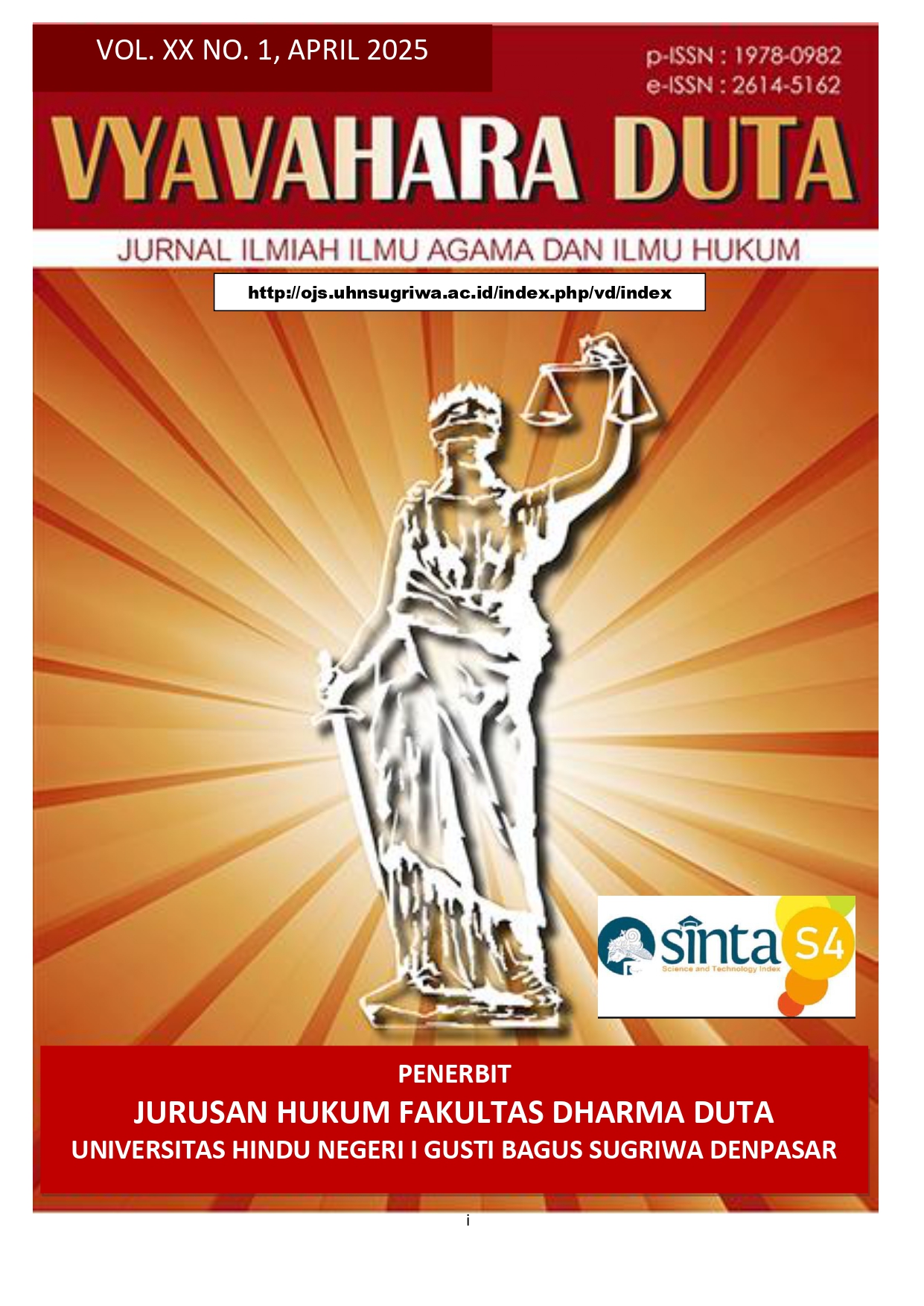Legal Status of Nyerod Women Who Mulih Daha in Kaba-Kaba Traditional Village, Kediri District, Tabanan Regency
Legal Status of Nyerod Women Who Mulih Daha in Kaba-Kaba Traditional Village, Kediri District, Tabanan Regency
DOI:
https://doi.org/10.25078/vyavaharaduta.v20i1.4196Abstract
This research is based on the occurrence of a divorce experienced by a woman who used to have a nyerod marriage process and then separated from her husband and decided to return to her original home, namely mulih daha in the traditional village of Kaba-Kaba, Kediri District, Tabanan Regency. Therefore, various questions arise regarding the legal status of women who mulih daha. The research method used is an empirical research method, with the types of interview approaches, observations and direct research in several places related to this research. The legal material collection techniques used are interviews and observations. The results of the research conducted by the author indicate an error in the legal status of women who nyerod who mulih daha in placing their status in the bajang house. This study aims to analyze the legal status of women who nyerod who mulih daha in the traditional village of Kaba-kaba, Kediri District, Tabanan Regency. Legal status is the situation of a party who has been recognized as meeting the criteria to express problems in court while women nyerod is the decline in the social status of a girl who is the result of marrying someone with a lower social status. The findings in this study are that women who do "nyerod" are viewed well in the Kaba-Kaba traditional community. If a woman then experiences a divorce or the death of her husband, she may "mulih daha", returning to her family of origin. Women who do nyerod describe a change in social status that can affect the individual being viewed well by the surrounding community. This can also have social and psychological impacts on the woman, including interacting with family, friends, and the wider community. In the Balinese context, caste reduction through marriage can affect various aspects of life, from social acceptance to economic opportunities and participation in traditional ceremonies.











